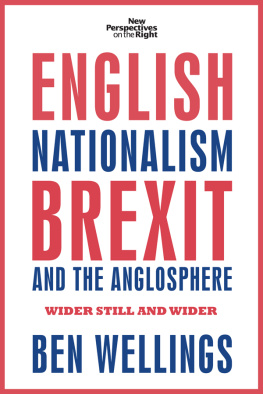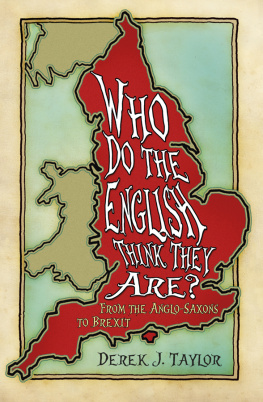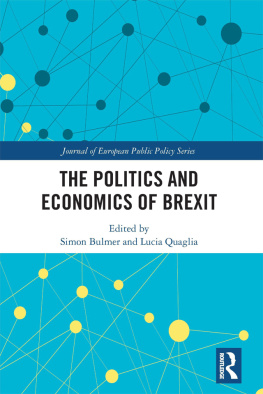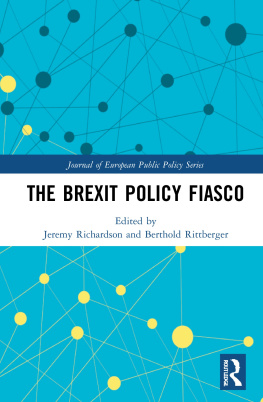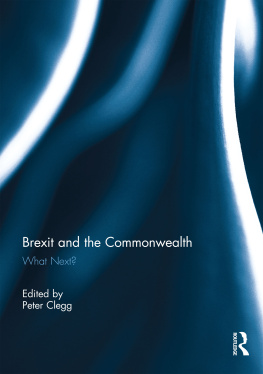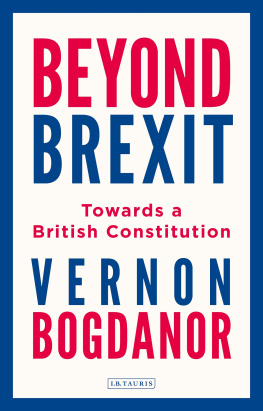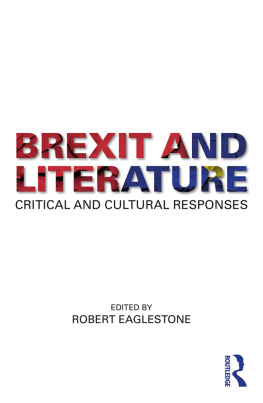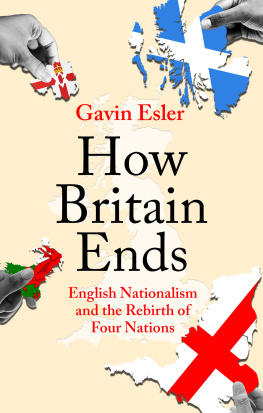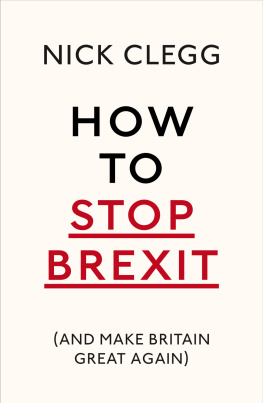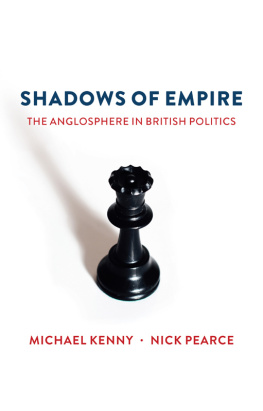Series editor
Richard Hayton
The study of conservative politics, broadly defined, is of enduring scholarly interest and importance, and is also of great significance beyond the academy. In spite of this, for a variety of reasons the study of conservatism and conservative politics was traditionally regarded as something of a poor relation in comparison to the intellectual interest in the Left. In the British context this changed with the emergence of Thatcherism, which prompted a greater critical focus on the Conservative Party and its ideology, and a revitalisation of Conservative historiography. New Perspectives on the Right aims to build on this legacy by establishing a series identity for work in this field. It will publish the best and most innovative titles drawn from the fields of sociology, history, cultural studies and political science and hopes to stimulate debate and interest across disciplinary boundaries. New Perspectives is not limited in its historical coverage or geographical scope, but is united by its concern to critically interrogate and better understand the history, development, intellectual basis and impact of the Right. Nor is the series restricted by its methodological approach: it will encourage original research from a plurality of perspectives. Consequently, the series will act as a voice and forum for work by scholars engaging with the politics of the right in new and imaginative ways.
Reconstructing conservatism? The Conservative Party in opposition, 19972010
Richard Hayton
Conservative orators: From Baldwin to Cameron
Edited by Richard Hayton and Andrew S. Crines
The right and the recession
Edward Ashbee
The territorial Conservative Party: Devolution and party change in Scotland and Wales
Alan Convery
David Cameron and Conservative renewal: The limits of modernisation?
Edited by Gillian Peele and John Francis
Rethinking right-wing women: Gender and the Conservative Party, 1880s to the present
Edited by Clarisse Berthezne and Julie Gottlieb
Copyright Ben Wellings 2019
The right of Ben Wellings to be identified as the author of this work has been asserted by him in accordance with the Copyright, Designs and Patents Act 1988.
Published by Manchester University Press
Altrincham Street, Manchester M1 7JA
www.manchesteruniversitypress.co.uk
British Library Cataloguing-in-Publication Data
A catalogue record for this book is available from the British Library
ISBN978 1 5261 1772 4hardback
ISBN978 1 5261 1773 1 paperback
First published 2019
The publisher has no responsibility for the persistence or accuracy of URLs for any external or third-party internet websites referred to in this book, and does not guarantee that any content on such websites is, or will remain, accurate or appropriate.
Typeset by Newgen Publishing UK
I can honestly say that this book was a pleasure to write. It had its origins in an honours course on English nationalism and Euroscepticism back in 2011. I am grateful to Helen Baxendale (now a Rhodes Scholar at Oxford University) for introducing me to the topic of the Anglosphere through her well-informed essay on this topic. Thanks also go to Oliver Hartwich at the New Zealand Initiative. Olivers invitation to debate Daniel Hannan in Auckland in 2012 was another important boost to my interest in this topic and its links with Euroscepticism.
The invitation from Pauline Schnapper and Mark Bevir to present a paper at the Centre of British Studies at the University of California, Berkeley in 2013 gave the idea behind this book further impetus. Ontario provided the next setting for a further elaboration of the arguments in this book in 2014, so my thanks go to the Toronto Three: Arthur Aughey, Michael Kenny and Krishan Kumar. The Huddersfield Two Chris Gifford and Andy Mycock also played significant roles in helping me think about the relationship between English nationalism, Euroscepticism and the Anglosphere. So too did leading lights of the M4 School of Euroscepticism studies, Ben Leruth, Nick Startin and Simon Usherwood, along with those French Anglophiles, Karine Tounier-Sol and Angs Alexandre-Collier and the English Francophile, Matthew Graves. Anglosphericals, notably Andrew Gamble, Srdjan Vucetic and Kathy Smits have also been supportive and collegial at crucial moments, whilst the Future of England Survey researchers findings have been appreciated from afar.
I began writing this book in earnest in July 2016 and a period of research leave in the first half of 2018 was crucial in helping it to see the broad, sunlit uplands of publication. Colleagues at Monash University have been both encouraging and supportive of this research topic and indeed of my employment at Monash after July 2013. Thanks go to Tom Chodor, Alice Davies, Natalie Doyle, Nick Economou, Sherin Fernando, Rae Frances, Tommy Fung, Zareh Ghazarian, Peter Howard, Julie Kalman, Katrina Lee-Koo, Pete Lentini, Ben MacQueen, Paul Muldoon, Narelle Marigliotta, Roseanne Misajon, Marko Pavlyshyn, Swati Parashar, Maria Rost Rublee, Paul Strangio, Jacqui True and Pascaline Winand. I am very glad to count former ANU colleagues as continuing colleagues: Annmarie Elijah, John Hart, Kim Huynh, Helen Keane, Jacquie Lo, Maria Maley, Daniel Stoljar, Emma Vines, Ryan Walter, David West, as well as Bruce Wilson at RMIT University. Richard Hayton has been hugely supportive of this topic throughout.
Friends are just as important as colleagues when writing a book. The World Cup WhatsApp chat group of Paul, Ivan and Keith helped me feel connected to England when progression from the group stages threatened to turn the world upside down. Research trips to England would not be the same without the deep understanding of the English psyche provided by Kirk, Claire and Claire, Simon and other patrons of the Five Bells o Stanbridge, a great pub located at that crossroads of history, south-west Bedfordshire. Tim and Kim were great Victory companions, along with Uma and David; and one day I will get down the front for a Jim Drury and the Renegades gig. Nausica and Iury two English-speaking people doing their bit to uphold the current world order from Lecce and Jean-Charles and Sarah doing the same in different ways from Brussels, helped keep my optimistic European spirit of the 1990s alive.
Imogen and Paul got married in 2015 and my nephew Alex came, like Global Britain, into the world a year later. Thanks go to Rini and Ray in Vancouver for introducing me to the Canadian version of 1812. My mother, Joyce, and mother-in-law, Esther, and my dads partner, Sue, have been incredibly supportive in different ways since I have known them. This book straddled a move from Canberra to Marvellous Melbourne for Shanti, Adi and Ria: it has been an absolute pleasure to see how Shantis career has flourished and how Adi and Ria have thrived in their new environment since relocating in the middle of 2013.
This book is dedicated to two people. The first is my father-in-law Jojok a generous and compassionate polymath from Java who spent much of his life amongst the English-speaking peoples and could muster Americans, Australians, English and Canadians in his own immediate family. His untimely death in June 2018 robbed us of a wonderful person. I hope I can emulate his spirit of generosity one day. It is also dedicated to my own father, Nick. Living life to the full on a BrightonDieppe axis, my dad has an incredible capacity to enjoy life, whatever circumstances might prevail. An involved father long before Baby Bjorns were fashionable, his strong intellect has been an inspiration to me as I have moved through life. I owe him thanks for that and for taking me to see QPR beat Liverpool 20 at Loftus Road in 1977. The rest, as they say, is history.

